Making a Just Society | MIT Books and Publications
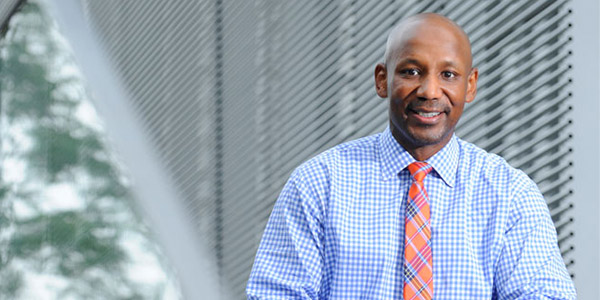
Craig Steven Wilder; photo by Richard Howard
"I think that we have to revisit these events — no matter how painful that process might be — to challenge the entrenched and embedded inequities of our system...We are ultimately responsible for the system that reproduces these injustices."
— Craig Steven Wilder, Barton L. Weller Professor of History
JUST SOCIETY HOMEPAGE
HISTORY
Ebony and Ivy | Craig Steven Wilder
In his acclaimed book, Ebony and Ivy, Race, Slavery and the Troubled History of America's Universities, Wilder documents the breadth of the economic, social, and intellectual entanglements between America’s early universities and the Atlantic economy that was rooted in the slave trade. (Bloomsbury, 2013)
Ebook from MIT Libraries | Review: New York Times | Review: WSJ | Story at MIT News | Wilder website
The Old Regime and the Haitian Revolution | Malick Ghachem
Historian and lawyer, Ghachems's areas of research are slavery and abolition, criminal law, and constitutional history. His history of the Haitian revolution (1789-1804), an epochal event that galvanized enslaved people throughout the Atlantic world, has had "a major impact on our understanding of the single most important turning point in the history of New World slavery." (Cambridge University Press, 2012)
Ebook from MIT Libraries | About the book | Ghachem website
POLITICAL SCIENCE
Shades of Citizenship | Melissa Nobles
Using previously overlooked historical sources, Nobles demonstrates that counting by race has always been a fundamentally political process, shaping in important ways the experiences and meanings of citizenship. This counting has also helped to create and to further ideas about race itself. (Stanford University Press, 2000)
Ebook from MIT Libraries | About the book | Nobles website
The Politics of Official Apologies | Melissa Nobles
Intense interest in past injustice lies at the center of contemporary world politics. This book examines the political uses of official apologies in Australia, Canada, New Zealand, and the U.S. It explores why minority groups demand such apologies and why governments do or do not offer them. Nobles argues that apologies can help to alter the terms and meanings of national membership. (Cambridge University Press, 2008)
Ebook from MIT Libraries | About the book
Trapped in America's Safety Net | Andrea Louise Campbell
When Campbell’s sister-in-law was run off the freeway by a hit-and-run driver, she was paralyzed from the chest down. The accident plunged her young family, who did not have health insurance, into the tangled web of means-tested social assistance. (University of Chicago Press, 2014)
About the book | MIT News article on the book | Campbell website
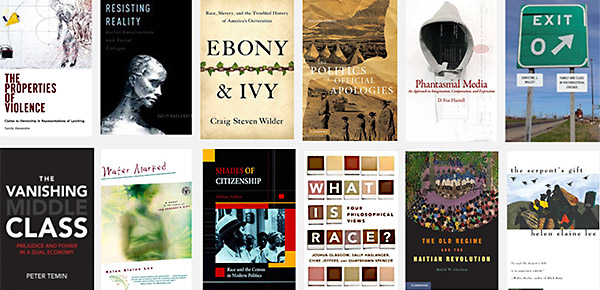
For more information about all faculty books, visit the School's Online Bookshelf.
CENTER FOR INTERNATIONAL STUDIES
Dream Chasers: Immigration and the American Backlash | John Tirman
Polls show that a majority of Americans now support some kind of path to citizenship for immigrants who are here, working, and contributing to the country. In this book, Tirman shows that while the remaining resistance is cloaked in language about jobs and secure borders, it is based in the cultural fear that immigrants are changing the dominant white, Protestant, “real American” culture. (MIT Press, 2015)
About the book
GLOBAL LANGUAGES
Eurasian: Mixed Identities in the U.S., China, and Hong Kong | Emma J. Teng
Teng compares Chinese-Western mixed-race families in the U.S., China, and Hong Kong, and finds that Eurasians were not universally marginalized during this era, as is often asserted. Rather, Eurasians often found themselves facing contradictions between exclusionary and inclusive ideologies of race and nationality, and between overt racism, more subtle forms of prejudice, and partial acceptance. (University of California Press, 2013)
About the book | Story at MIT News
ECONOMICS
The Vanishing Middle Class | Peter Temin
Temin argues that American history and politics, particularly slavery and its aftermath, and ongoing systemic racism, play an important part in the widening gap between rich and poor. Temin employs the model of a dual economy to examine the dynamics of the rich/poor divide in America, and outlines ways to work toward greater equality so that America will no longer have one economy for the rich and one for the poor. (MIT Press, 2017)
Ebook from MIT Libraries | About the book at MIT Press | Temin webpage
Escaping poverty requires 20 years with nothing going wrong | Peter Temin
Temin offers five proposals to remedy the growing inequality in the U.S.: expanding access to and improving public education; repairing infrastructure; increasing funding for programs that build social capital and increase economic mobility; recognizing that private agencies do not serve the interests of all citizens as well as public entities can; and addressing systemic racism by reviving the spirit of the Second Reconstruction of the 1960s and '70s.
Article at The Atlantic
LITERATURE
Intellectual property | Sandy Alexandre
Alexandre examines the relationship black Americans have with material possessions.
Story at MIT News | Alexandre webpage
The Bluest Eye turns 50 | Sandy Alexandre
Commentary by Professor of Literature Sandy Alexandre on Toni Morrison's debut novel: "Morrison’s exquisite language has always given her readers a variety of ways, routes, and turns of phrase to understand the world, so perhaps it’s no surprise that she has rendered something like 'structural racism' comprehensible."
Commentary
Through the lens of literature: violence against African Americans | Sandy Alexandre
The grim history of lynching in the U.S. is preserved through photographs, memoirs, novels, and poetry. Studying those images and words, Alexandre reveals how closely lynching was related to the issue of property.
Story at MIT News
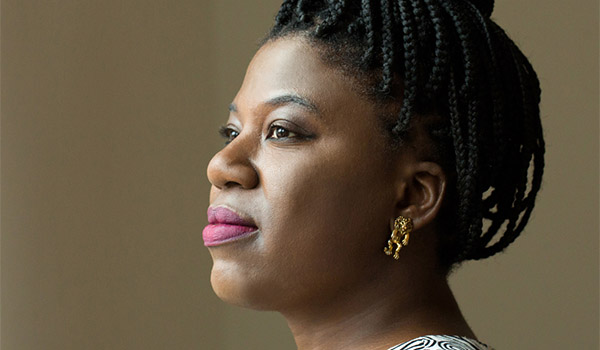
Sandy Alexandre; Associate Professor of Literature; photo by Jon Sachs, MIT SHASS Communications
“What I love most about literature is that it facilitates empathy for, and acceptance of, other people. It’s a space of virtual intimacy between human beings that creates the circumstances to enable actual intimacy in the real world."
— Sandy Alexandre, Associate Professor of Literature
COMPARATIVE MEDIA STUDIES / WRITING
Bengali Harlem and the Lost Histories of South Asian-America | Vivek Bald
“It began as a story about the South Asian diaspora, but it became clear that it was also a story about African-American and Puerto Rican neighborhoods, and the families, friendships and communities that South Asian Muslims formed there."
Story at MIT News | Book website
Phantasmal Media | D. Fox Harrell
In Phantasmal Media, Harrell considers the expressive power of computational media. He argues, forcefully and persuasively, that the great expressive potential of computational media comes from the ability to construct and reveal phantasms—blends of cultural ideas and sensory imagination.
Ebook from MIT Libraries | About the book at MIT Press
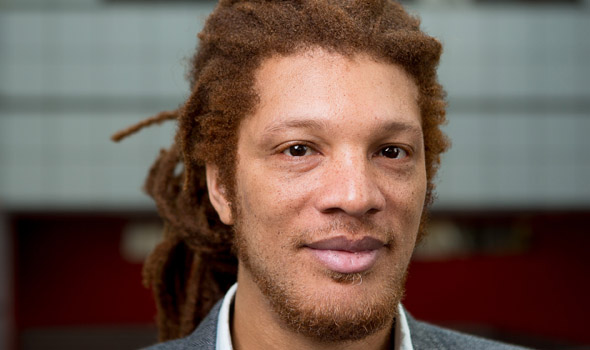
D. Fox Harrell; photo by Jon Sachs
“I’m interested in the ways virtual identities can be used to encourage social change. Artful uses of technologies to imagine ourselves can be a powerful tool for social intervention.”
— D. Fox Harrell, Professor of Digital Media and Artificial Intelligence
The Serpent's Gift | Helen Elaine Lee
"From its opening pages to its almost pastoral conclusion, The Serpent's Gift creates a world that is both realistic in its detail and lyrical in its presentation. It is a superb, triumphant debut." (Atheneum, 1994)
About the book | Lee Website
Water Marked | Helen Elaine Lee
"A novel of great ambition and achievement. . . about the power and the pain of memory, about the stumbling, staccato rhythms of family, about finding a way to go home again." (Scribner, 1999)
About
Visible Men | Helen Elaine Lee
"Every few months for twelve years, I have visited a Massachusetts prison to teach creative writing to a group of locked-up men.... It is not my job to unravel the skein of their guilt, to judge or absolve. I am here as a witness. I am here in the name of story and its power to transform."
Essay at The New York Times
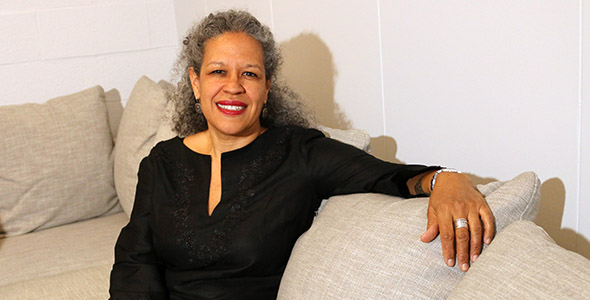
Helen Elaine Lee; photo by Jon Sachs
As a fiction writer, it is my job to inspire readers to imagine the world differently. I try to show things as they are, with enough humanity and hope to counter the despair provoked by the realities."
— Helen Elaine Lee, Professor of Writing; head, Women's and Gender Studies
Design Justice | Sasha Costanza-Chock
“Design justice” is an approach to design that aims explicitly to challenge, rather than reproduce, structural inequalities. It has emerged from a growing community of designers in various fields who work closely with social movements and community-based organizations around the world. (MIT Press, 2020)
About the book | Costanza-Chock webpage | Story at MIT News
Teaching Our Way to Digital Equity | Justin Reich
The "digital divide" includes the gap in access to new technology found between more and less affluent students, families, or school communities. There is also a usage divide. Research shows that students in minority and low-income schools are more likely to experience tech through isolated, low-rigor activities, while tech-infused learning opportunities are more often relegated to more affluent, high-achieving students. How can teachers and school leaders break the pattern?
At Educational Leadership | Justin Reich webpage
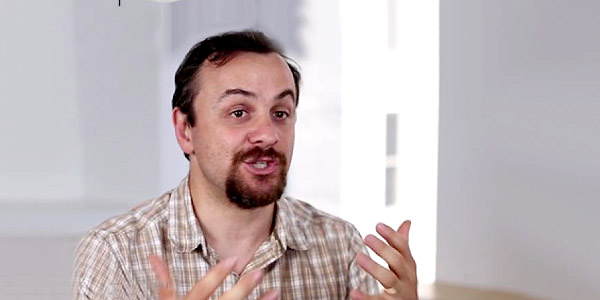
Justin Reich, Director, MIT Teaching Systems Lab
Research shows that students in minority and low-income schools are more likely to experience tech through isolated, low-rigor activities, while tech-infused learning opportunities are often relegated to more affluent, high-achieving students. How can teachers and school leaders break the pattern?
ANTHROPOLOGY
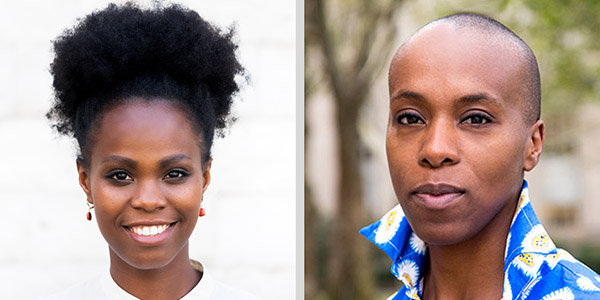
L to R: Liliane Umubyeyi, co-founder/co-director, African Futures Action Lab; M. Amah Edoh, MIT Assistant Professor of Anthropology
What will it take to sustain the momentum of movements for racial justice sparked in 2020? Discover ideas in this new essay collection co-edited by Amah Edoh, MIT Assistant Professor of Anthropology, and Liliane Umubyeyi, co-founder/co-director of the African Futures Action Lab.
Sustaining the Momentum | edited by Amah Edoh and Liliane Umubyeyi
Sustaining the Momentum: Reparative Justice for European Colonialism and Slavery is the latest publication in the Editor’s Forum series from Cultural Anthropology. The "Theorizing the Contemporary" series is the result of the Justice Now! symposium that Edoh and Umubyeyi organized and hosted (remotely) at MIT in the Spring of 2021.
News Announcement | M. Amah Edoh | Liliane Umubyeyi | Society for Cultural Anthropology | African Futures Action Lab
Exit Zero | Christine Walley
Walley builds the case that rapid deindustrialization in the U.S. was not simply the result of seemingly inevitable shifts in the global economy, but a consequence of corporate-friendly policies that pitted management interests against the long-term interests of companies and their workers. “If you really want to understand expanding class inequality in the U.S., one of the places you have to look is the long-term impact of deindustrialization,” Walley says. (University of Chicago Press, 2013)
Ebook from MIT Libraries | About the book | Story: Hard times in Chicago | Exit Zero website
PHILOSOPHY
What is 'natural' and what is 'social'? | Sally Haslanger
In Resisting Reality (Oxford University Press, 2012), Haslanger argues that gender and race are not purely "natural categories," they are also "social constructs. And, she explains, "the supposed line between the 'natural' and the 'social' is of crucial importance for theories of justice."
Interview by MIT SHASS Communications
Resisting Reality: Social Construction and Social Critique | Sally Haslangrer
Haslanger's 2012 book is a collection of essays on gender and race. “Both race and gender are social positions that individuals occupy by virtue of their body being interpreted a certain way,” she says. Recipient of the Joseph B. Gittler Award, from the American Philosophical Association. (Oxford University Press, 2012)
Ebook from MIT Libraries | About | Interview by MIT SHASS Communications
What Is Race? Four Philosophical Views | co-authored by Sally Haslanger
Across public discourse, in the media, politics, academic inquiry, and daily interactions, we spend a lot time talking about race: race relations, discrimination based on race, racial progress. But do we know what race is? Is it a social construct or a biological object? Is it a holdover from a time before contemporary science? Most fundamentally, is race real? In this book, four prominent philosophers and race theorists debate how best to answer these questions, applying philosophical tools and the principles of social justice to findings from the biological and social sciences. (Oxford University Press, 2019)
Ebook from MIT Libraries | About the book | Haslanger website
Studying While Black | Sally Haslanger
"How should we explore the relationship between race and educational opportunity? One approach to the Black-White 'achievement gap' explores how race and class cause disparities in access and opportunity. In this paper I consider how education contributes to the creation of race."
PDF of Paper | Haslanger website
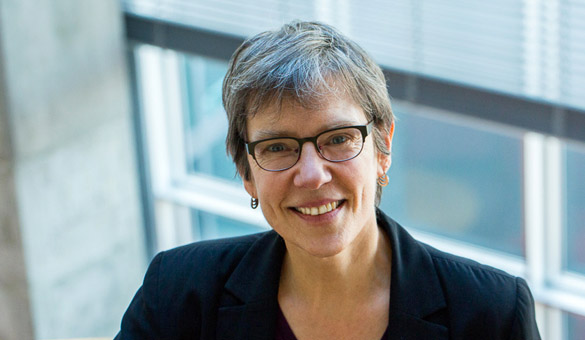
Sally Haslanger; photo by Jon Sachs
Gender and race are not purely "natural categories," says Haslanger, they are also "social constructs." The supposed line between the "natural" and the "social" is of crucial importance for theories of justice, she says. The 'natural' is not as fixed as we might think, and the 'social' can be much more fixed than we imagined. Some differences between us must be respected, and others should be overcome, but which are which?"